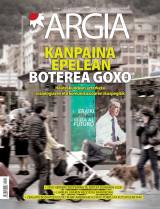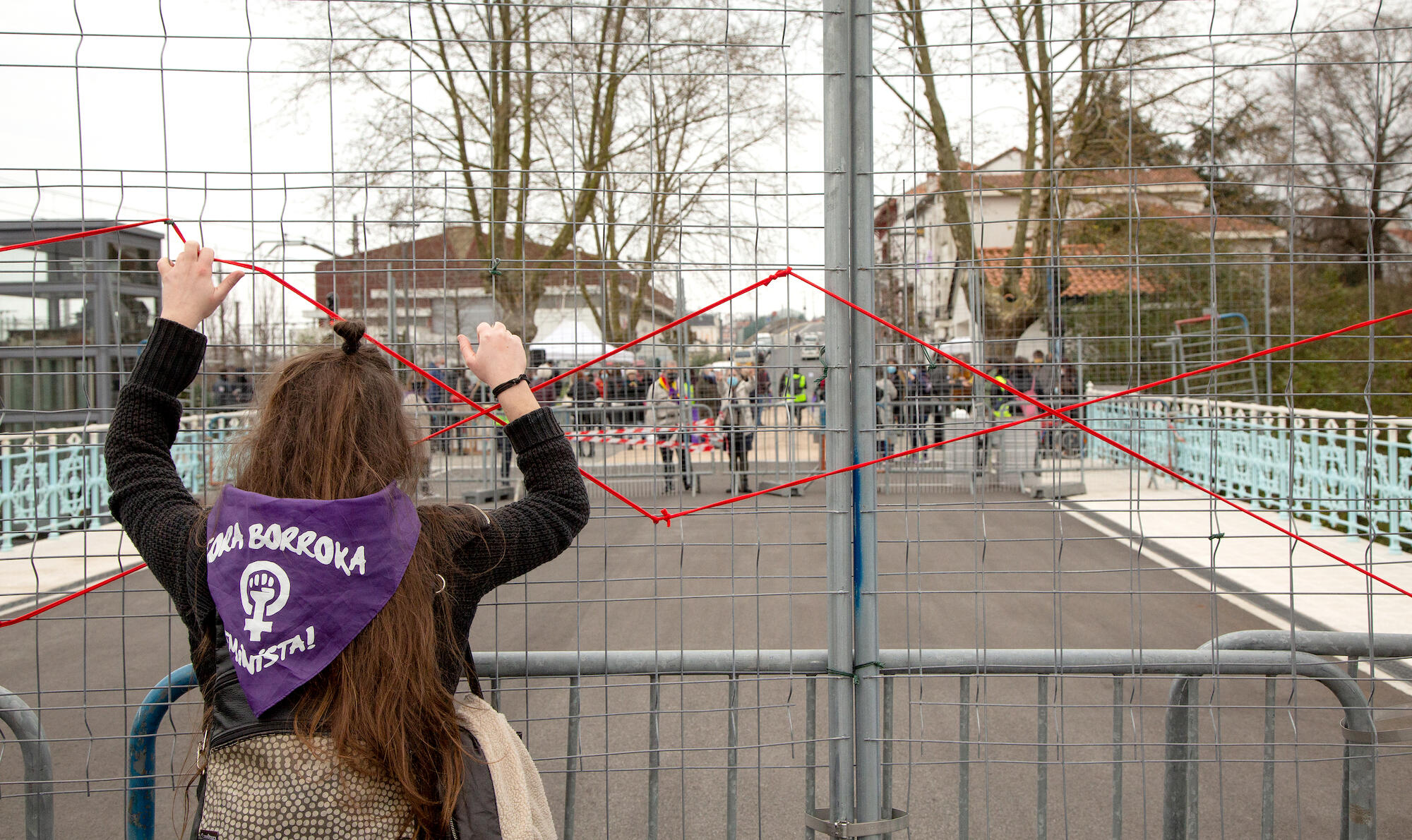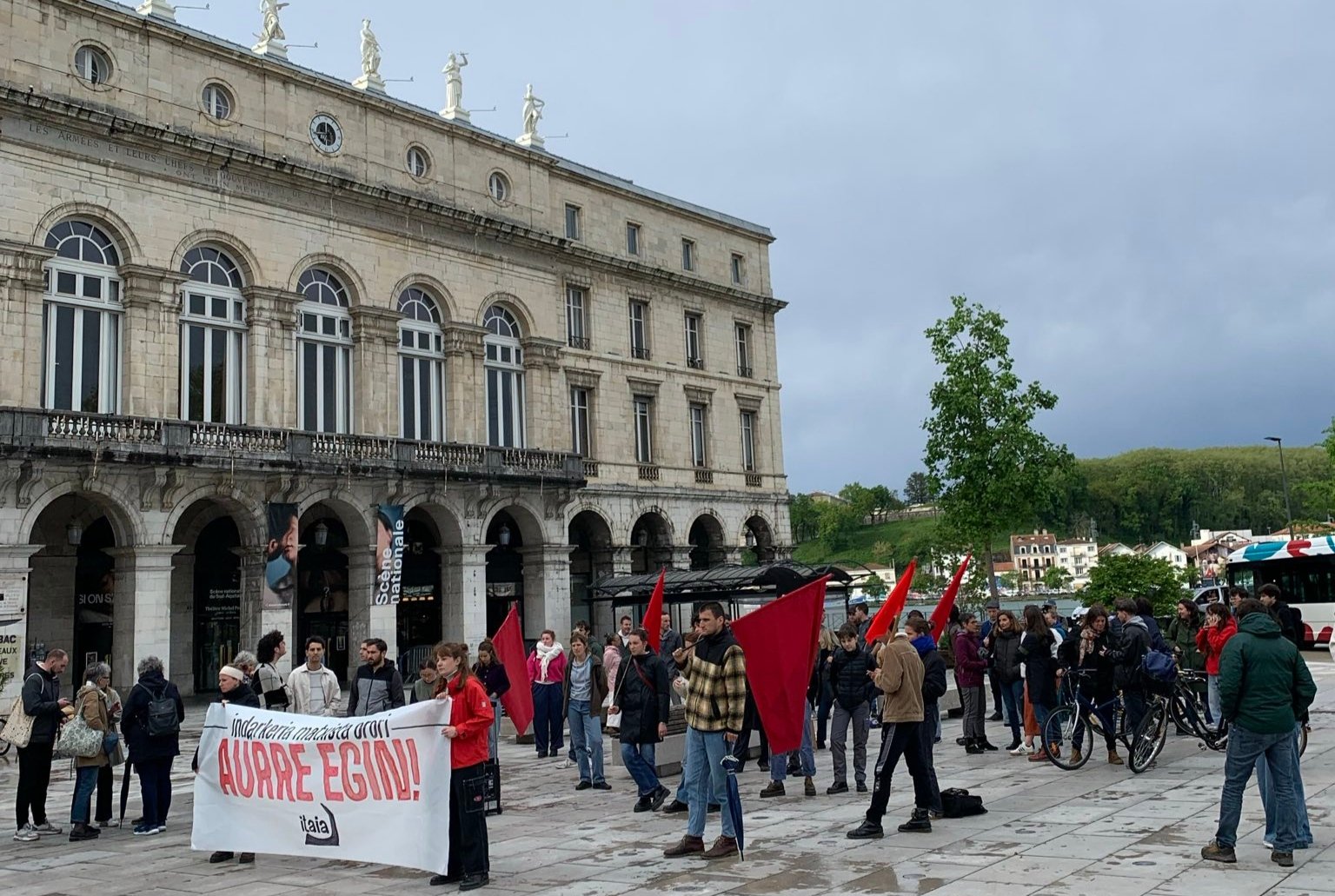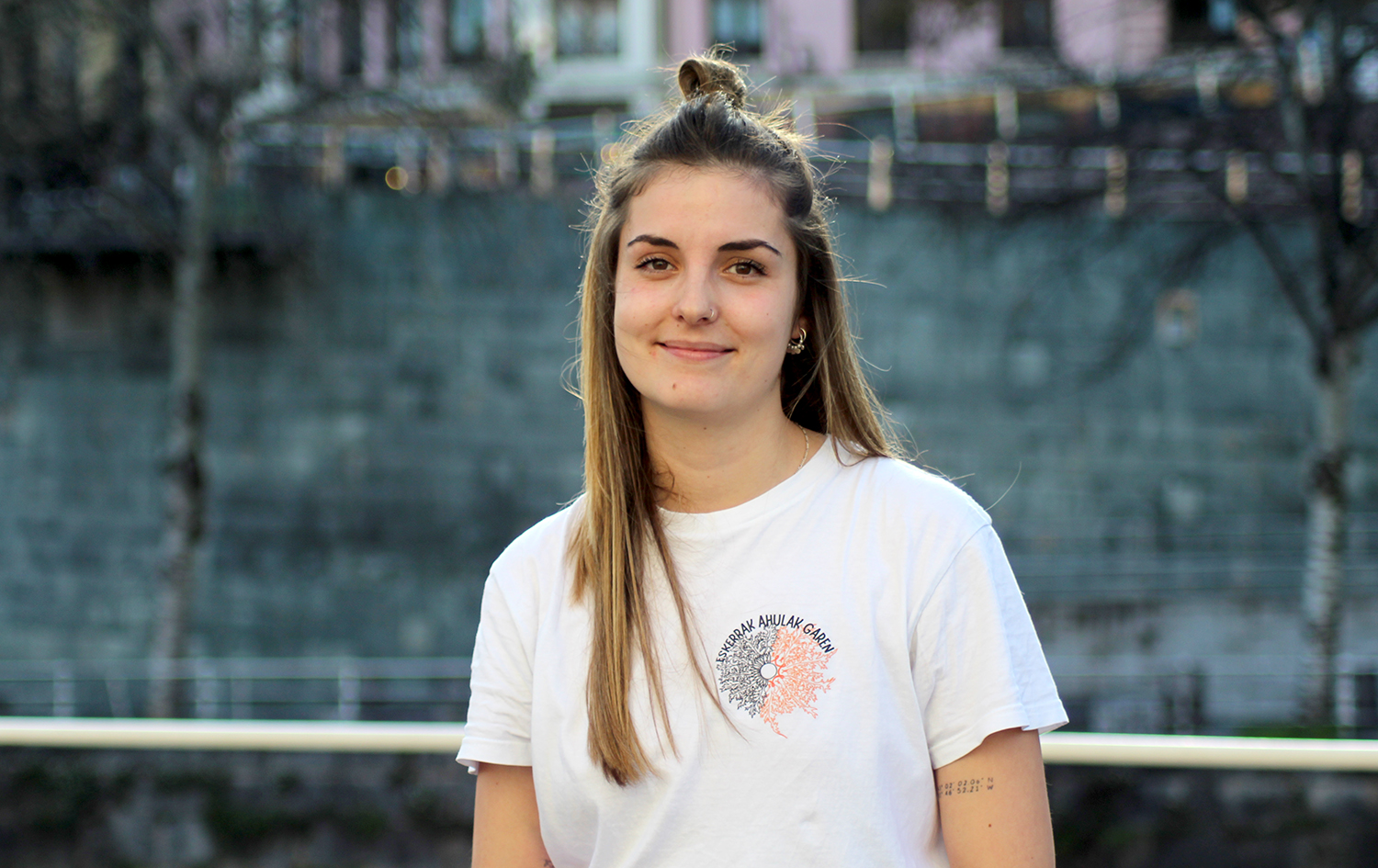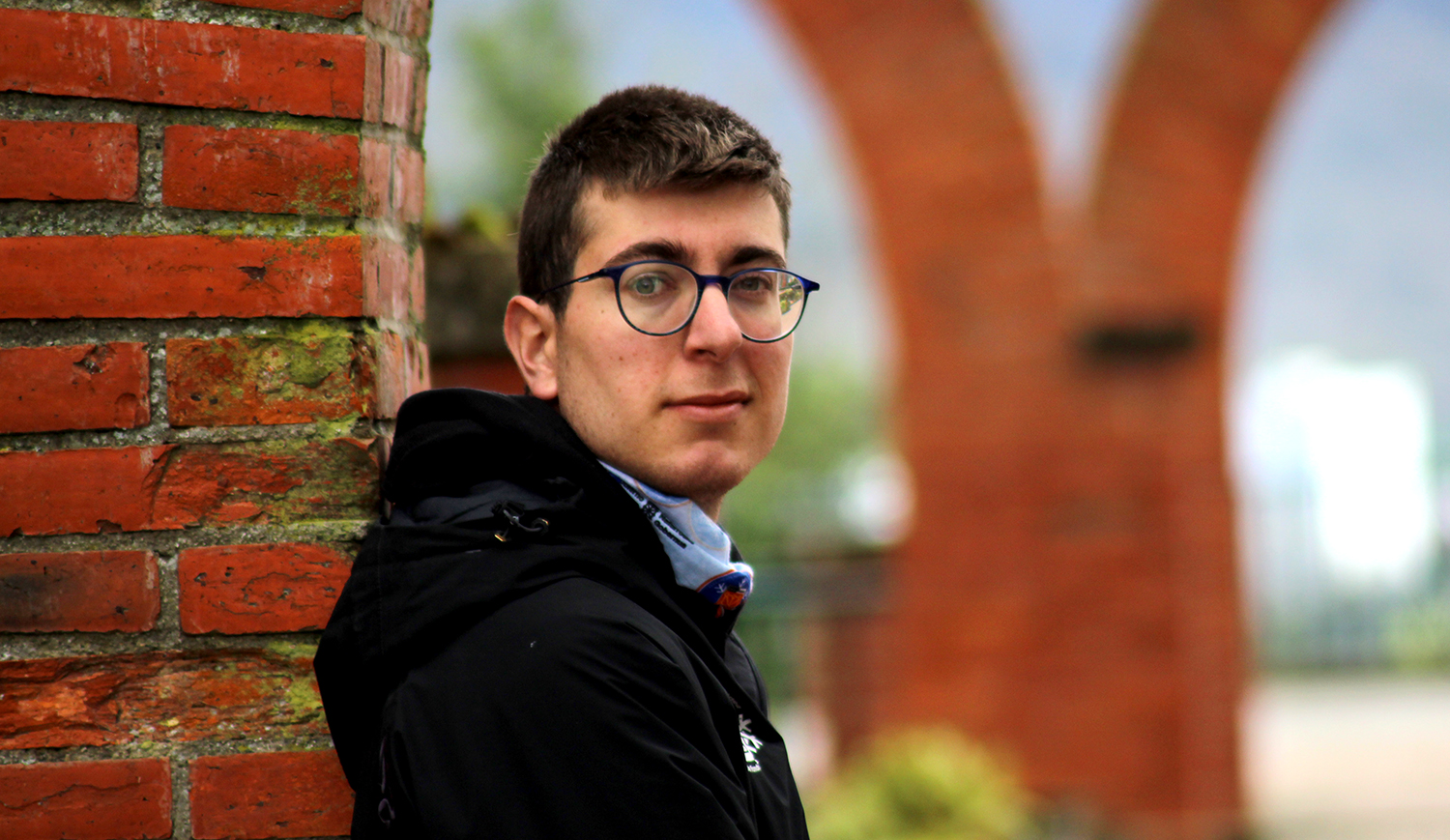"People have to know what a decent life is, what it takes and what it doesn't."
- Yayo Herrero (@ytesto_herrero) is director of the FUHEM Foundation dedicated to eco-social research and a member of Ekologistak Martxan. He welcomes us in Madrid to talk about the sustainability of life. In his opinion, it is necessary to put ecologism and feminism at the center of the paradigm, if we want to bet on a dignified life. On 24 September, the workshop will be held on The Works and the Production Model in the Systemic Crisis. Eco-Socialist meetings in Bilbao.
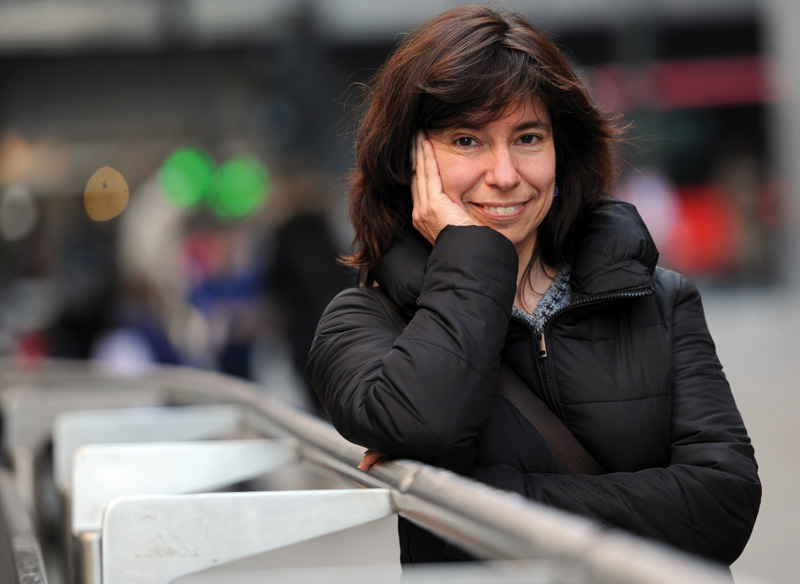
What is ecofeminism?
It's a dialogue between the environmental and feminist movement. In our view, it is an essential dialogue, because if we analyze the origin of the civilizing crisis we live in, we will realize that what keeps the patriarchy and the ecological crisis is the same. The proposals to abandon patriarchal society therefore have a great deal to do with the measures needed to overcome the ecological crisis. It is very important to stress that ecofeminism is not only a tendency of thought, but also a social movement. Often, the wisdom of experts unfolds from intervention in the world, and that's a problem. Ecofeminism wants to intervene in the world to change it radically.
The concept was first used in the 1970s.
The term was adopted by the French Françoise d’Eaubonne, but at that time it had already begun to use the word ecofeminism. It emerged in the context of the Cold War: the culture of that time put at the centre the privileges of men and generated politics, economy and technology (weapons) that risked life. So it was claimed that you can't move towards a just world if you don't put feminism at the center. Environmentalism and feminism converge in criticism of production, economic growth and development, and share the commitment to a society and an economy that puts everyday life at the centre. Putting life in the center means recognizing that we are subjected to nature and that we live on a finite planet. We also assume that we have fragile and weak bodies. In other words, it must be acknowledged that it is impossible to go ahead without the care work others offer us. Ecofeminism emphasizes that, although this has been the case in history and in almost all territories, care should not be done exclusively by women.
You've underlined that we are subject to nature and that we are interdependent beings. In the book Sustainability of Life (REAS Euskadi) states that “two addictions are inevitable and invisible in the theoretical schemes of the conventional economy”.
To explain that they are invisible, we have to analyze how some elements have been built in Western society and capitalism: production, for example. In the seventeenth and eighteenth centuries, economics as a science began to define production. Production was all that nature, with the help of the human being, could redirect: agriculture, fishing… Production met the needs of the human being. Over time, the definition of production has been modified: economically evaluable and
“How much does pollination cost? How much does childbirth cost? They are absolutely necessary processes for the sustainability of life and cannot be measured economically, even with the price, because if these processes are damaged there is no turning back.”
Production is all that makes the economy grow. Here's a problem. What, for example, is the answer to these questions: How much does pollination cost? How much does the ozone layer cost? How much does childbirth cost? These processes are absolutely necessary for the sustainability of life and cannot be measured economically, even with the price, because if these processes are damaged there is no turning back. For example, if the ozone layer is reduced and the harmful rays of the sun come to us, you cannot go back. We have a problem because the system acts like it doesn't exist what can't be measured economically. We put an example of women working at home. This work is not considered work anywhere and does not generate social rights. The land is exploited and women are exploited at work, without detecting that they are necessary for the sustainability of the capitalist economy itself. The production of the capitalist system is not possible at an incredible rate without the deterioration of nature and without the working hours of women at home, which is the necessary labour force for the market they need.
It would be contradictory for the capitalist system to pay for these works, if it's basically sustainable through those two addictions.
Absolutely. The capitalist system forcibly destroys nature and is patriarchal. If we move towards a sustainable non-patriarchal system in the ecological sphere, this system cannot be capitalist.
In the book The Sustainability of Life, addressing the dependence of nature, you affirm that “humanity will have to get used to living with less.”
The situation is urgent on the ecological level. In recent decades, the economy has consumed much of the renewable and non-renewable resources and has modified their cycles. The human being has to live with less, because there is not the same amount of energy and minerals as before. The question is why this material reduction is going to be carried out: if it is going to be done on the path of fascism, for example. In other words, if these economic, political and military powers are going to continue with their wasteful life model, at the expense of getting more and more people out of the system. An indicator of this situation is the poorly designated “refugee crisis”. Migratory models are repeated: people who go from the countryside to the city often flee from the droughts caused by climate change and when they arrive in the city they encounter war. These are wars aimed at controlling resources: energy and mineral competition is present in the wars in Syria, the Middle East and Afghanistan. These refugees are people driven out of their country and those who survive the painful journeys that end the lives of so many individuals find a barrier to their arrival in Europe. There are two kinds of discourse about migration.
Tell us both speeches.
The first is explicitly fascist. “Here we don’t all go.” The second is solidarity, it talks about the need to incorporate migrants, but it does not question the economic system that is maintained thanks to the resources plundered in these countries. In other words, there are people who want to solve the situation of refugees in society, but at the same time they want to maintain the economic and productive model that we have in the Western countries. If we were to use the migrant non-entry fence to prevent the entry of energy, the entry of materials or the exit of waste, we would not last for two months. From the point of view of care, in the Spanish State and in Europe, we note that in most cases women from looted countries work in the care of the elderly, children and the disabled. But it's not just about Spain and Europe, it's about the dependence and interdependence of nature around the world, and it's unsustainable.
“If we used the barrier of non-entry of migrants in order not to put energy in, not to put materials in, or not to take waste out, we would not last for two months.”
When I say that living with less is essential, we have to bear in mind that the initial situation is not the same for everyone. The poorest countries will probably have to live longer, and those living in precarious conditions in Western countries will also have to increase their consumption in some areas. But most rich countries can live with less matter and less energy. If there are people who need more, people who have a lot have to be at the expense of living with less.
Many citizens believe that we can go on for a long time in this situation. Political parties and institutions also stress the need to boost consumption and expenditure in order to “revive” the economy.
There are very interesting theories that say that we are in a general crisis. Despite the seriousness of the situation and the continuing information on climate change, the energy crisis or water poisoning, there is no social-political response. I would highlight two aspects to explain: on the one hand, the cultural sphere. We believe in technology, we say, “they will create something that solves it,” and it is summed up in the following phrase: “We will go to another planet.” Looking at reality generates anxiety and fear. Fear can stop us when we don't know where the problem comes from. When we're afraid and we're standing still, human beings look away. There is also a media landscape that shows at all times the wisdom of the experts: “Don’t worry, the problem is in the hands of experts.” This leaves aside the need to work on the cause. In the political-institutional sphere, we have four-year electoral campaigns. Important cultural changes are necessary: people have to know what welfare is, what life with dignity is, what consumption is, what it is and what it is not, what rights and what privileges are… and that change goes against the current culture. In the election campaign, candidates are not opposed to the collective imaginary. I believe that all these things could be said in a credible way; we have to look at how we can do it and come up with alternatives. However, those who wish to change society face a situation of powerlessness, as it is virtually impossible to restore the criteria for initial production.
What are the proposals of ecofeminism to achieve a sustainable model?
Three hegemonies must be fought: economic, political and cultural hegemony. Although it seems that the most difficult thing is economic hegemony, in my opinion this is not the case. A proposal has long been made to change the productive model in different areas: agriculture, industry, urbanism, transport... Devastating and unnecessary sectors must be closed and those that can be developed and created jobs must be bet on: energy rehabilitation of buildings, local food production, group-based transport and proximity... The need for care work in society is enormous, for example. Three questions have to be answered: what are the needs to be met with the resources we have (and not with those we do not have); what we have to produce to meet them; and finally, what are the socially necessary jobs. It is a redistribution of wealth, but also of time: the time needed for life must be arranged and the time needed for custody must be shared between women and men.
Errepikatu nirekin: Sara Millerey. Ez dezagun ahaztu bere izena. Transfeminizidioaren biktima da Millerey: gorrototzaile transmisogino batek torturatu zuen, besoak moztu zizkion eta bizirik bota zuen ibaiertz batera. Bi orduko agoniaren ondoren hil zen.
Errazagoa da J.K... [+]
Many Basque feminists have been disappointed to learn that writer Chimamanda Ngozi Adichie has externalized pregnancy, meaning that a surrogate has fertilized her baby for money.Adichie is the author of the essay We should all be feminists, among others. They have ignored the... [+]
Indartsua, irribarretsua eta oso langilea. Helburu pila bat ditu esku artean, eta ideia bat okurritzen zaionean buru-belarri aritzen da horretan. Horiek dira Ainhoa Jungitu (Urduña, Bizkaia, 1998) deskribatzen duten zenbait ezaugarri. 2023an esklerosi anizkoitza... [+]
Gozamen aparta bezain deskribatzeko zaila dakar, norbaiten hitzak irakurri edo entzun ostean, zera pentsatzeak: “Horixe zen neu aurreko hartan azaltzen saiatu nintzena!”. Idazlea eta itzultzailea da María Reimóndez, eta galegoz aritzen da, hizkuntza... [+]
Orain arte desgaituak ez diren pertsonekin lehiatu da Uharteko Ipar Eski Taldeko Eneko Leyun eskiatzailea (Iruñea, 1998). 2024-2025 denboraldian, lehenengo aldiz parte hartu du Adimen Urritasuna duten Pertsonentzako Iraupeneko Eskiko Espainiako Txapelketan. Urrezko... [+]
Joan den urte hondarrean atera da L'affaire Ange Soleil, le dépeceur d'Aubervilliers (Ange Soleil afera, Aubervilliers-ko puskatzailea) eleberria, Christelle Lozère-k idatzia. Lozère da artearen historiako irakasle bakarra Antilletako... [+]









